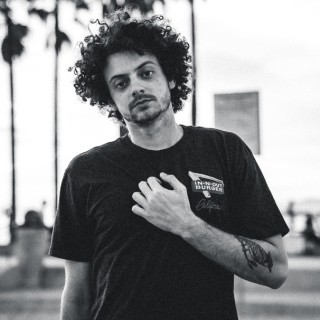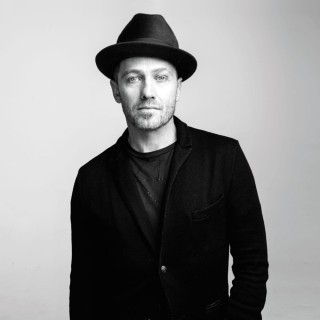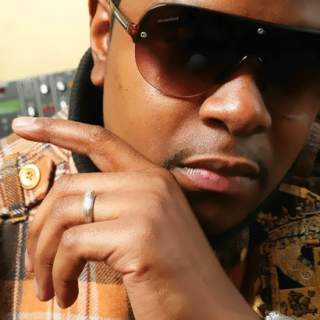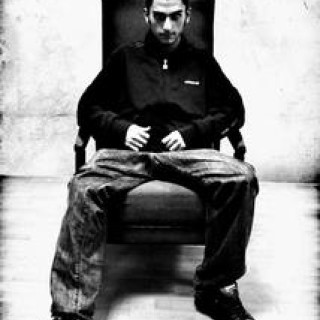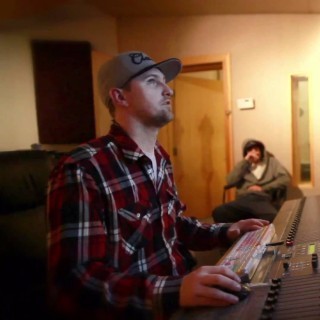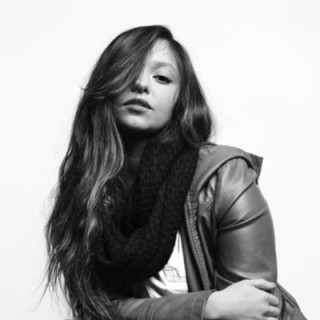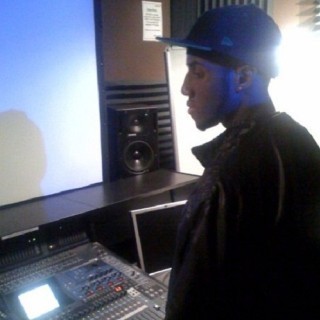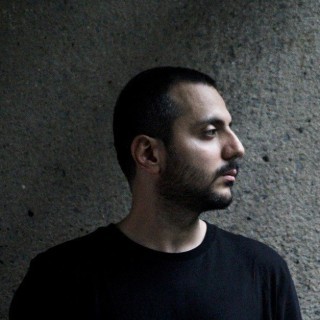
3.5 - Who's Your Favorite Teacher
Cathy Davidson
Lectures: "The History and Future of (Mostly) Higher Education"
10.02.2014
152
Rap
Tekst piosenki
[Professor Davidson]
Hi I'm here with Grant Samuelson, who's the Associate Director of the John Hope Franklin Humanities Institute, and-- if I may say so editorially-- one of the smartest people I know: an expert in avant garde music, art, modernist design and many, many other things. And we're going to ask him the same question we've been asking everybody: who's your favorite teacher and why?
[Grant]
Well, it's a great question because I think about this guy frequently. A little bit of preamble, because there's something that has some life circumstances that factor in; I'll be brief. In the 60's, when middle class families could afford to buy a house in the area that I grew up in, which is the north shore of Chicago, my family moved from Logan Square to a tiny house-- I used to call it post-G.I. Bill housing-- in Glencoe, Illinois, in the New Tier School District-- which, when I went to high school eventually it was ranked, I guess, the best public high school in the country. So anyway things got messy; as the suburb got richer, we got poorer. Somehow, though, thanks to my mother's hard work we were able to keep the house and stay in the school district, which was our goal.
So that factors into the way that I encountered this gentleman. My first day of my freshman year in high school, I had registered for a class called "Film Making". My high school was set up like a small college: they had a vibrant art program, massive theatre program-- Lili Taylor went there, for example-- and we were very blessed and very lucky with all these facilities and programs. I had chosen film making because my father, in the 60's and 70's, had worked for an educational film distributor. So I was aware of things like the National Film Board of Canada productions. So I was vaguely aware that there was this thing called avant garde film. And the class at New Trier seemed intriguing, for that reason. I had some sense that this was going be about both art and something that I knew a little bit about.
So, the first day of class, myself and some friends of mine walked in and encountered a gentleman named Richard Olderman. He introduced himself-- we called him Dick for 3 more years-- he was the only teacher we referred to by first name in high school. Kind of an aging hippie filmmaker himself. He had, in fact, known folks like Stan Brakhage, and was also teaching film at an art center down the road a little bit, closer to Chicago. Amusician; kind of a polymath. Within 10 minutes of the beginning of that first class, on my first day of freshman year, we were watching Stan Brakhage's "Mothlight". Later on in that class session, we watched Kenneth Anger's "Kustom Kar Kommandos" and "Rabbit's Moon".
[Professor Davidson]
This is not a typical ICP.
[Grant]
Not a typical ICP. And the reason for the preamble earlier was to illustrate how lucky and blessed I feel to have been able to stay in that school district and encounter this guy. And, right at that moment, I knew that it was one of those moments where you know that there's something that you don't know about that looks really interesting and you want to know more about it.
So, we, my friend, a couple of friends and I stayed with him in that class for about 3 more years before he left the school, and ended up with a teacher in the fourth year, who was well meaning but not as interesting or intense and gave us-- myself and my friends-- a bit of a benchmark for comparison. At that point, we understood really how unique this guy was: as a teacher, as an artist, as someone who introduced us-- or could introduce us-- to really other worlds, literally: film making-- personal and aesthetic; artistic and intellectual. But I think that the most important thing I got from Dick Ol' was the sense that art could be a form of critique: that art is not just about things that were beautiful and transformative in that way-- which, as a 13 or 14-year-old, I was aware of to some extent-- but that art could confront; that art could infiltrate, confront, and change. And I think of Dick Olderman probably once a week, and I'm in my late 40's. I've not seen him since 1984, but he made an indelible impression on my life, and I think something that I literally follow, or rather a path that I literally follow every day.
[Professor Davidson]
That's, that's very powerful. Very powerful.
[Grant]
He had great hair, too.
[Professor Davidson]
Great hair really helps in a high school teacher.
[Grant]
Indeed.
[Professor Davidson]
Thank you so much.
[Grant]
Thank you.
[Professor Davidson]
Thanks for being with us, and sharing this story. Thank you.
[Grant]
This was fun.
[Interlude to Mary Williams]
[Professor Davidson]
Hi. I'm here today with my colleague Mary Williams, who's the financial analyst here at the John Hope Franklin Humanities Institute. And we'll be asking her the same question that we've been asking so many friends. Mary, who is your favorite teacher?
[Mary]
My favorite teacher would be Dr. Day. He is my spiritual teacher. He is my pastor, and he teaches Sunday School every Sunday, and his primary goal is Christian growth.
[Professor Davidson]
And do you find that his, what he teaches you stays with you as you're, when you leave his presence?
[Mary]
Yes I do. And I try to do that on a daily basis. Some people think church is just for Sunday, but church is every day.
[Professor Davidson]
And is that one of his lessons?
[Mary]
Yes, that's one of his lessons, yes.
[Professor Davidson]
Does he practice that in a way besides preaching? What does he do? What is he like as a human being?
[Mary]
Oh, he is just simply, I mean he's just outrageous. He's in the public eye. He works with us; he works in the community. As a matter of fact, for 4 Sundays this month, we will be packaging meals for the less fortunate.
[Professor Davidson]
That's wonderful. So he really is a man whose religion, and translates into everyday life.
[Mary]
>> Yes.
[Professor Davidson]
And into action.
[Mary]
And into action, yeah.
[Professor Davidson]
Well, that's wonderful. Is there anybody else?
[Mary]
No, that's it.
[Professor Davidson]
That's great. Well that's a wonderful and inspiring story. Thank you.
[Mary]
Thank you.
[Interlude]
[Casey]
Can you tell me a bit about who your favorite teacher was, and why they're your favorite teacher?
[Interviewee]
Oh, my gosh, there's a list. I loved Mrs. Graves-- she's probably passed away-- my 1st grade teacher. She taught me responsibility. I loved Mrs. Jumper, my 4th grade teacher, gave me a love of math. I love Reno-- Bev Reno-- which was one of my professors at Northern Kentucky University Nursing School, who taught me the love of caring for other people, helping people to die with dignity or to help them become better, "vested in their care" kind of thing. And I'm giving a shout out to my niece. She's Mrs. Christy ?-Rhodes. She loves music and she's teaching a whole next generation a love of music. So, teachers have so much, and they make such an impact on young and older people, like me going back now to school to get my Master's.
[Casey]
Oh, so you're going back to get your Master's. Master's in what?
[Interviewee]
Education. I'm going into nursing education. I do some of that now where I work at the St. Elizabeth.
[Casey]
So are there any teaching methods that you've encountered over the years that make you think in a different way about the material, or that have really impacted the way that you think about the world and your work now?
[Interviewee]
Well you know, nursing is a whole different ball of wax. So our method of teaching, of course, is always evidence based, new technology coming up, nursing methods and there's several theorists. But just genuinely having a love of people and wanting to care. We're nurturers; that's why we went into nursing. So, we'll see.
[Casey]
So, I have to ask. One of the phrases we've used in this course before is, "See one, do one, teach one," which is the medical for--
[Interviewee]
Absolutely, we do that. Especially with our new grads, like when you're a preceptor or when an experienced nurse has a new grad or a role transition-- in the state of Kentucky, we have role transitions before you graduate-- and yes. You see one, they do one, and then they are qualified in order to do that skill. Absolutely.
[Casey]
And do you think that's a good method?
[Interviewee]
Absolutely. Nursing is hands on. Yes, ma'am. You want the anatomy and physiology behind it, but actually, the skill itself, nurses are hands on. So--
[Casey]
That's terrific. Well thank you so much.
[Interviewee]
You're very welcome, and good luck.
[Interlude]
[Casey]
So, tell me about your favorite teacher, or learning experience.
[Interviewee]
Sure. It'd be my pleasure. My favorite teacher were actually students. You know, I've spent my entire teaching career of over 40 years working in education, and I've always had the benefit of being around young people; of course, being a student at one point and then being an educator. So, again, my favorite teachers were always the students. Whether they were my years in the classroom, or when I became a professional working in a field and the students became the teachers. And I think it was a great opportunity to experience that, especially in a classroom that wasn't a traditional classroom, but it was more focused on social emotional learning. So, I believe strongly in that concept. Academics are important, too, but I think the areas of character education; character learning; service learning; that type of thing is critical to the educational experience as anything else. And from what people experience, whether they're students or other young people, you know, that's the life experience that they bring to an education, and it really rounds it out.
So, teachers can be great facilitators, making sure that opportunity takes place in a classroom, as well as outside of a classroom. You know, learning doesn't just happen in the four walls from 8:00 in the morning until 4 in the afternoon.
[Casey]
Great. So tell me a little bit more about social and emotional learning. What it is and why you're so passionate about it.
[Interviewee]
Sure. Well, again, working with typical kids is one thing, but again, my career has been spent working with special needs young people. So, the traditional learning-- the academics-- don't always register, and you're always looking for ways that are going to be more creative, ways that they can relate to techniques and strategies that will resonate and kind of stick to the wall for them. So, the social emotional learning is making experiences in a classroom and outside of a classroom kind of come to life. So using real life opportunities for service learning is an example. Kind of like community service: it's a great idea to go out and clean up a park or to collect cans of soup for homeless shelters and that sort of thing, but it's another thing when you are learning about the reasons why you do something like that and then implement it and then come back to the classroom and reflect about it; talk about it; and do journals. Or do something like what you're doing: video documentations, or writing a blog, or putting a student newspaper together, doing a school assembly, talking about the experiences.
So that's really how learning takes place. You know, not that there's anything wrong with learning from a book or going to a website. But the hands-on approach is something that, again, our students in special needs education really related to. And it's always best when you have it as an inclusive setting, where children with and without disabilities are working together in the same situation. And they're sort of co-creating the opportunities to learn, and are working together as peers. So, again, watching the children in that capacity, they've been my best teachers.
[Casey]
That's so terrific. Well, thank you so much.
[Interviewee]
You're quite welcome. It's been my pleasure. Good luck with your project.
[Casey]
Thank you.
[Interlude]
[Casey]
Would you tell me a bit about who your favorite teacher was, and why they were your favorite teacher?
[Interviewee]
Absolutely. So, I have 2 favorite teachers. My dad was an educator and always kind of instilled creativity and curiosity within me. So my dad's a physics educator, so I always asked questions and they were always answered, which was pretty cool. I took an afternoon one day, and asked what trig was, and my dad taught me trig in an afternoon when I was in third grade. So, it was around that time; it was pretty cool.
My other favorite teacher was a lady named Miss Pattack, and she was my American Sign Language teacher. So I'm actually an ASL interpreter. So, those two teachers kind of guided and influenced me along my career paths, both from a scientific approach and also from a linguistic approach. So that's where I kind of ended up today because of those two different teachers.
[Casey]
So, were there any unique teaching methods that your dad used to teach you trig in an afternoon, or that your sign language teacher used to get you to think differently or creatively about the subjects they were teaching you?
[Interviewee]
Yeah, and it might not sound like they're similar, but language is, as well as any abstract reasoning, you cannot just tell the answer-- and that was one of the most infuriating things when I was a kid-- is, "What's the answer this?" "What do you think the answer is to this?" So, as a kid, it just makes your skin crawl, but it gives you the ability to reason and come to your own conclusion, which is probably more important that being told the answer in the first place. So that was really, that was probably one of the best things that-- techniques-- is throwing someone in the deep end and making them figure it out themselves. And I believe that sincerely.
[Casey]
Very neat. Well, thank you so much for your time.
[Interviewee]
No problem.
Tłumaczenie
Brak
Polecani artyści
Najnowsze teksty piosenek
Sprawdź teksty piosenek i albumy dodane w ciągu ostatnich 7 dni
